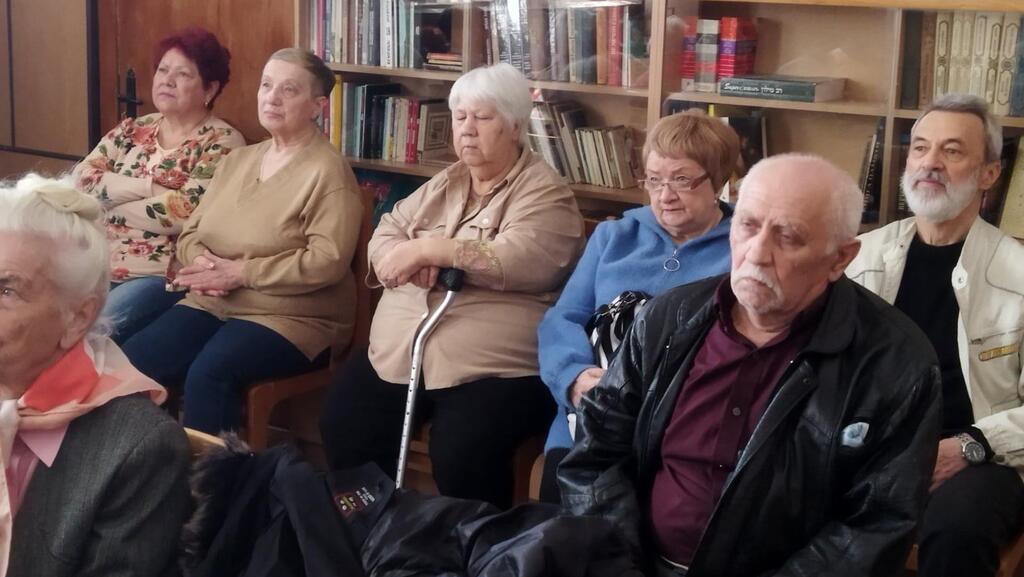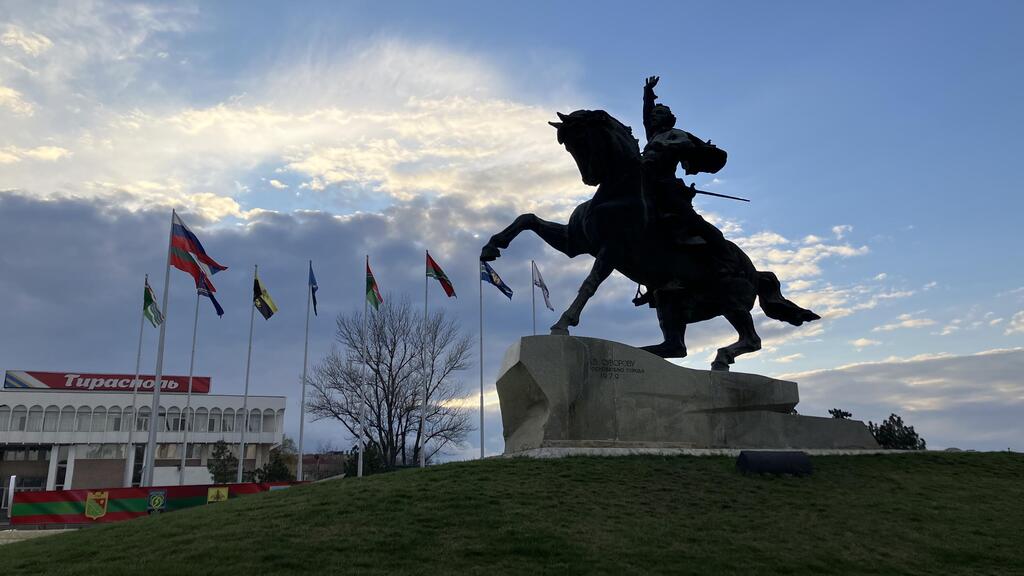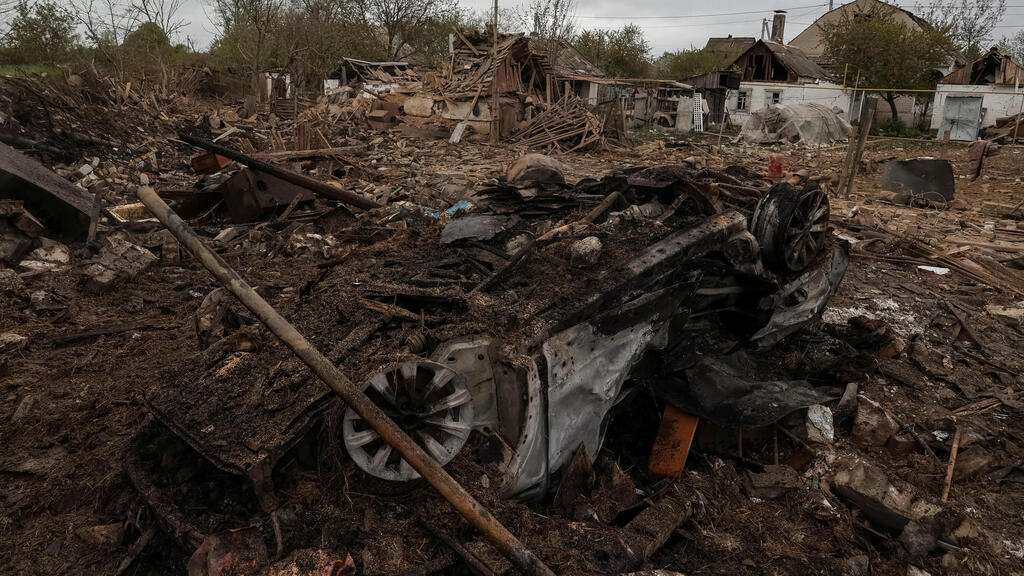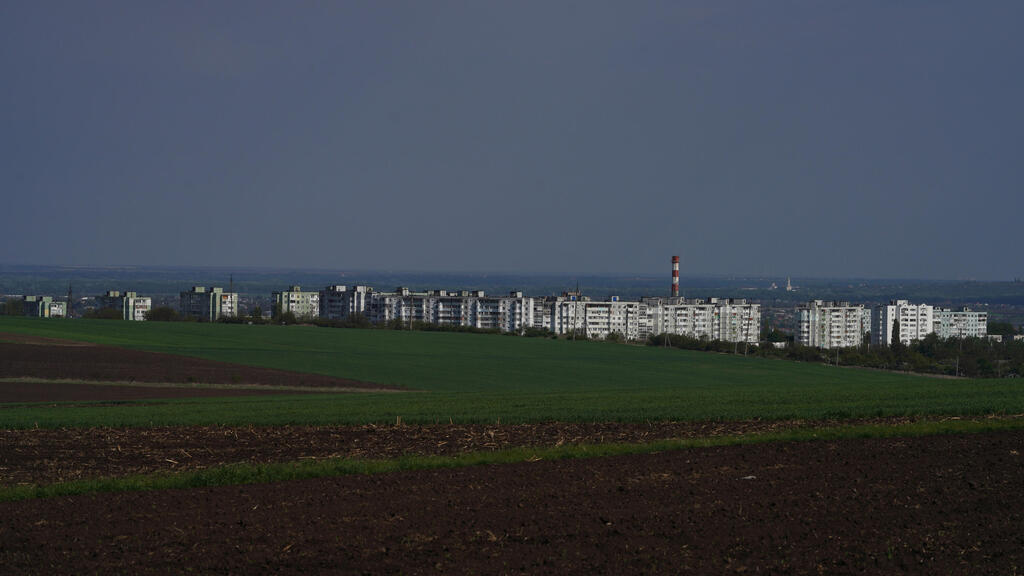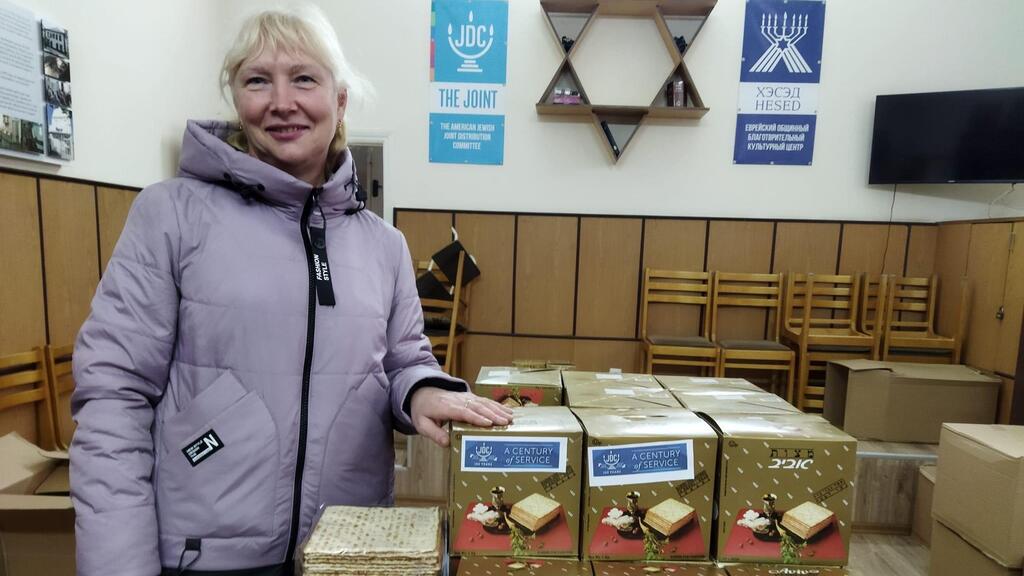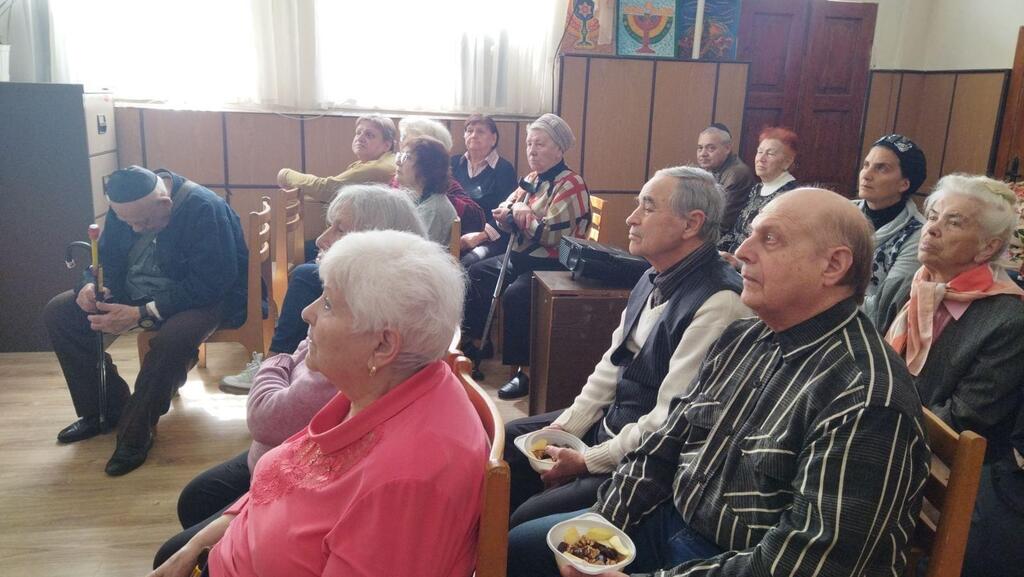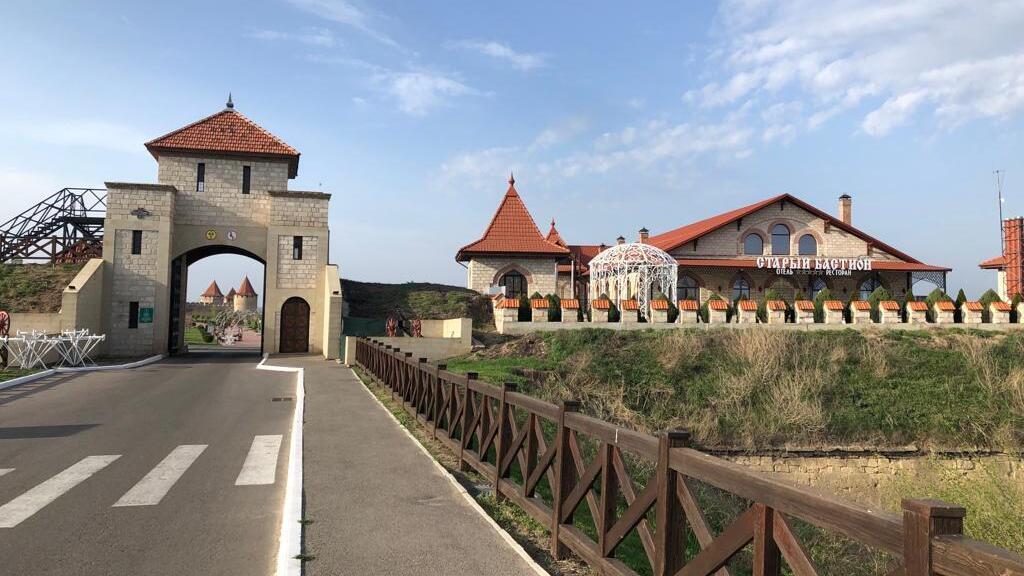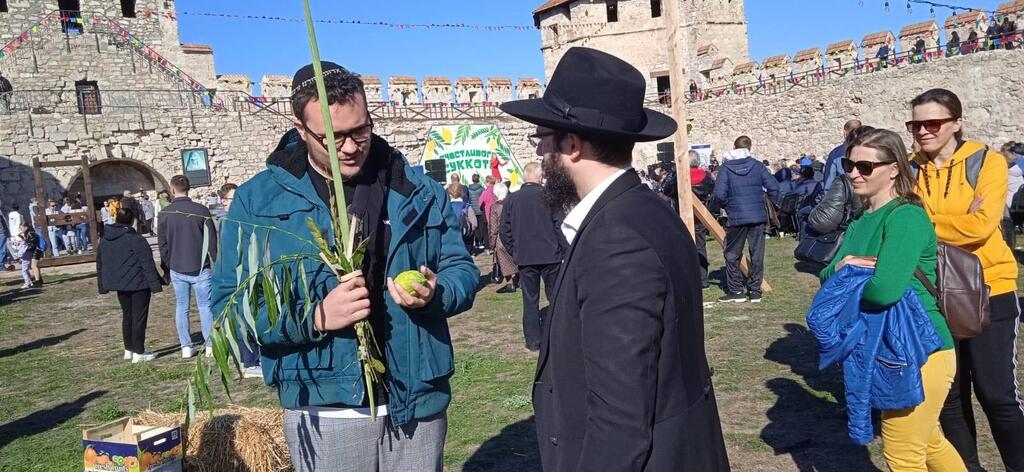Getting your Trinity Audio player ready...
The population in Transnistria, nesttled right in between Ukraine and Moldova, is traditionally considered pro-Russian, but the Jewish community living in this region insists on not taking sides in the war that is unfolding next door.
Between Ukraine and Moldova, the local Jews strive to assist Ukrainian refugees who have fled their homeland, but they are careful not to make unembellished statements about the war to avoid tension with either side.
Transnistria (or Pridnestrovie in Russian and Ukrainian) is a territory along the Dniester River, measuring only 400 kilometers long and 10 kilometers wide, situated between Ukraine and Moldova. The territory belongs to Moldova, but the Republic of Transnistria has its own currency, army, and laws. In the west, the territory is called Transnistria, but it is important not to confuse it with the larger Transnistria between the Dniester and the southern Bug River, which Adolf Hitler gave to the Romanian leader Ion Antonescu, where hundreds of thousands of Romanian Jews were killed during World War II.
Present-day Transnistria is a small country with big ambitions. It declared independence in 1991, but UN member states do not recognize it as a country. Due to its ties with Russia, the West imposed a blockade on it two and a half years ago. Today, it is impossible to pay with credit cards in Transnistria, transfer money there via bank transfer, or enter Ukraine and EU countries through it in a vehicle without a Transnistria license plate. Since 1992, when there was a civil war there, Russian troops have been stationed.
Transnistria inherited important strategic sites from Russia, including some of the largest armories in Europe. About 1,500 Russian soldiers who have been here since the days of the Soviet Union's 14th Army still guard these armories. Given the ongoing situation on the Ukrainian front, "Pridnestrovie" has become a coveted gem. The Russians declared at the start of the war that this land is their next target, and the Ukrainians declared that they could take it over in a short time.
In April of last year, unknown assailants in a car with Ukrainian license plates fired on the office of the State Security and Airport in Tiraspol, the capital of Transnistria. A few weeks ago, authorities in Transnistria presented documentation of a Ukrainian citizen with a bomb who apparently intended to harm the president of the republic, and was arrested. According to recent reports in the media, the ruling authorities have agreed that the territory will not be dragged into the war in Ukraine.
An impressive Jewish history
After a night flight from Israel to Chișinău, the capital of Moldova, and a short rest at a hotel, I traveled with a taxi driver to Tiraspol. The distance between the two cities is 78 kilometers. At the entrance to the city, the symbol of the Soviet Socialist Republic of Moldova stood out, with the hammer and sickle and the flag of the republic from those times.
In Tiraspol, we meet Yuri Kreichman, a former IDF soldier, who runs the local branch of "Chesed" - a network of Jewish welfare organizations founded by The Joint (the largest Jewish humanitarian organization in the world) and operating in the former Soviet Union. He has a cool and optimistic attitude and declares the neutrality of the Jewish community regarding the war in Ukraine.
"We have five Jewish communities: Tiraspol, Dubasari, Rîbnița, Grigoriopol, and Bender," he specifies. "Jewish communities are alive and well. In Transnistria, important Jewish sites have recently been discovered, such as the tomb of Rabbi Sabbatai of Rascov, and there are other graves of righteous people in the area. We are now building a genealogical tree for them, showing how they are related to each other and where their descendants and these communities in Israel are now. We already know who to turn to, and soon we will build a hiking trail for tourism purposes."
"Traditionally, in this entire area, there was a very large number of Jews, and they represented high percentages of the population. Of course, the events of the Holocaust and migration greatly changed the situation for the worse"
In Jewish history, the region is also remembered in negative contexts. 120 years ago, a Christian boy was murdered in Dubossary before Passover, and as part of the blood libel, the blame was placed on the Jews. This was one of the events that led to the Kishinev pogroms, which Bialik wrote about in his poem "On the Slaughter" and the poem "In the City of Slaughter."
"If we talk about Tiraspol, today we're talking about 600 Jews according to the Law of Return, and in the whole country, we counted around 1,700 Jews according to the Law of Return," said Kreichman. "We have a synagogue in Tiraspol, and from a Jewish perspective, we collaborate with the 'Agudat Israel' community in Kishinev, who are our spiritual fathers. In every city in Pridnestrovie, there is at least one monument to commemorate the victims of the Holocaust, and we take care of them. We would be happy to maintain any connection with Jewish communities and organizations from anywhere in the world."
Assisting refugees, not just Jews
Kreichman has been the director of "Chesed" for three years. "To our knowledge, the Jewish community has been here since at least 1888. If we look at the 1917 population census in Tiraspol, we see that a third of the city's population was Jewish. Traditionally, in this entire area, which belonged to the Kherson Province in Ukraine as part of the Russian Empire, there was a very large number of Jews, and they represented high percentages of the population. As for Dubasari, it can be said that it was a Jewish town because more than half of its population were Jews - as well as Rîbnița and Rascov."
"Of course, the events of the Holocaust and migration greatly changed the situation for the worse," he clarified. "Currently, we are in contact with Jews living in the United States and other countries, maintaining connections with them, and they have helped us greatly in funding the renovation of the Jewish cemetery in Tiraspol."
Did refugees from Ukraine arrive here?
"There are patients of 'Chesed' who came to us from the area of Mykolaiv and Odesa. We transfer them from Odessa to us, it happens relatively quickly, and like any other client, they receive assistance here. If we are talking about refugee families in the community, then yes, we have had such families. There are different families with different needs, and there are those who settled in Pridnestrovie near family members or friends.
"For example, there is one fairly large family that lived in the refugee reception center in Pridnestrovie. The state organized seven centers for accepting refugees, they lived there. We helped with aid in distributing supplies totaling about $8,000 to both Jews and non-Jewish Ukrainians."
"The Joint, our donor, was forced to pay money to a brokerage company in Kishinev that converts dollars to leu (Moldova's currency) and transfers it to us, and here we convert the leu to our rubles. On each conversion, we lose between 15 to 17 percent of the money."
According to him, so long as the Ukrainians did not close the border between Ukraine and Transnistria, he and his friends accompanied 12 buses of refugees heading towards Kishinev, where a large absorption and sorting center for refugees was established: "Today there are about thirty or forty people who stayed here with relatives or acquaintances. They continue their journey according to the situation in their city in Ukraine and their own decision."
Distributing cell phones to the elderly
The Jewish community may still be alive, but Kreichman doesn't try to hide that a lot has changed. "Unfortunately, Yiddish is only heard in the synagogue among the older generation, mainly in jokes or arguments," he laughs. "It is less present among the younger generation."
However, he clarifies: "We always place a strong emphasis on tradition. Today we have a new project called 'The Caring Connection,' which is actually funded by The Joint. We have acquired over 200 mobile phones with our own software, and the people who are eligible to receive these devices, according to the criteria, receive a wide range of activities from us every day, from physical education to lessons with the rabbi. The device has built-in Zoom, for which you do not need to enter a username and password - it is directly integrated into the phone program. Thanks to the software, we have turned the smartphone into a "Savta-phone," (grandma-phone in Hebrew) which is convenient for use by older people who need large buttons. Everything is more convenient and adapted for them."
How do you deal with the sanctions?
"We have enormous difficulties because of the sanctions. About two and a half years ago, the Treasury Department of Moldova asked to stop bank transfers to our country. As a result, The Joint, our donor, was forced to pay money to a brokerage company in Kishinev that converts dollars to leu (Moldova's currency) and transfers it to us, and here we convert the leu to our rubles. On each conversion, we lose between 15 to 17 percent of the money. Ukraine and Romania have stopped allowing vehicles with our identification plates into their territory. This is indeed a problem that is present, as many residents of Tiraspol have dachas (seasonal homes) on the sea in the Odessa region."
A 25-year-old rabbi
Founder of "Chesed" Dr. Amos Avgar describes the essence of the Jewish welfare enterprise 30 years after its establishment: "We founded 'Chesed' to address the terrible hardships experienced by Jews with the fall of communism. As a Jewish community center, 'Chesed' gave Jews a sense of pride and rebuilt the Jewish identity. It provided a range of social, material, and health services. My idea was to use the crisis as an opportunity to build a community and establish a welfare infrastructure."
"We established the activity based on volunteers and the grounds of 'Yiddishkeit' (a Jewish way of life), with the aim of integrating Jewish tradition and values, and ultimately making 'Chesed' a lever for building a Jewish community," he noted. "In the centers, Shabbat candles are lit, Passover is celebrated, volunteers' birthdays are celebrated, and evenings of singing and learning are held. 'Chesed' provides services such as home assistance, hot meals, medical equipment, winter clothing, and visits from doctors and volunteers."
On our way back, we passed through the city of Bender. This is where the ancient fortress, which is the main tourist site in Transnistria, is located. The city is home to the second-largest Jewish community after Tiraspol. The head of the community, Mark Finkleson, runs a shoe manufacturing factory. He proudly states that there are about 300 Jews living in the city. He tells us with pride that Bender is the only city in the country with a permanent rabbi and Chabad emissary: Rabbi Mendel Gotzel, who is 25 years old.
"We didn't have a rabbi since the late 80s," Finkleson said. "We received a building from the government for the purpose of a synagogue, and today we are renovating it. In the meantime, during the renovations, Shabbat meals and community events are held in one of the halls of my factory, which was previously used to host guests. In the Jewish cemetery, we erected a monument in memory of the Jews who fought and fell in World War II, as well as a monument in memory of the Holocaust victims. In our fortress, we hold an annual festival of Jewish culture during the Sukkot holiday."


